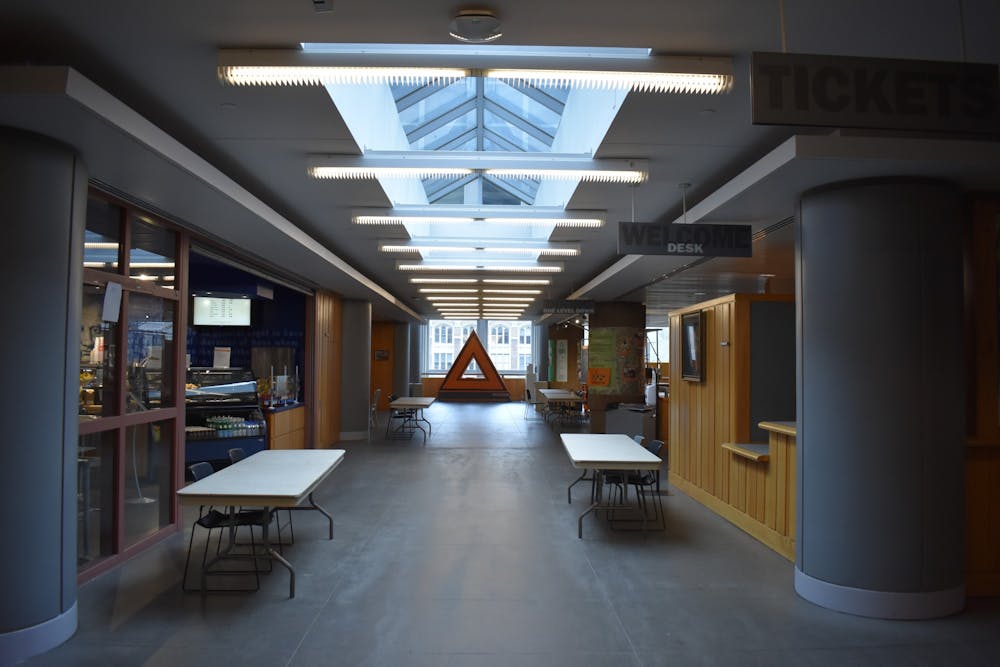One of the things that stood out to me about Princeton two years ago, besides the name, the endowment, and the generous financial aid, was learning our informal motto: “In the Nation’s Service and the Service of Humanity.” As one of the typical “I want to save the world” type kids, I was excited to engage in meaningful work with the support of the institution and likeminded peers. Throughout my first two years at Princeton, though, I have been sorely disappointed by lackluster student civic engagement — and resistance from the University itself.
It’s not that service opportunities don’t exist. Community Action trips during orientation offer students an opportunity to engage with service right at the start of their Princeton careers. The Pace Center for Civic Engagement supports service groups, sends students on Breakout Trips for civic engagement over fall and spring breaks, and offers semi-frequent volunteer opportunities. Community House provides opportunities for mentorship and tutoring. There are plenty of opportunities for civic engagement and community service as a Princeton undergrad.
The problem is, between competitive performance groups, club and varsity sports, eating clubs, and all of the other extracurricular time sinks and heavy workloads, no one ever seems to have time for service.
My freshman year, I signed up for a volunteer opportunity with Community House, a Pace Center program where students can work as mentors and tutors for underrepresented youth. There was such low interest that there was only one event, and I was the only person there. In two of the student-run activist groups I’m in, we hardly have enough people to fill our board. In my work with student activist groups, I’ve been struck by how much overlap there is within membership. It always seems to be the same few people showing up. I once saw the same girl four times in one night, all at service-oriented events.
It’s no wonder there’s so much burnout in the people who are committed to service. For many Princeton students, it seems that service is the last priority. With so many other opportunities constantly available to us, it’s easy to neglect civic engagement and service. Then, those who are actively engaged in activism and service risk spreading themselves too thin.
As we approach a fall semester that looks entirely different from the norm, with eating clubs closed, student groups facing closed facilities and the inability to meet in person, and the Ivy League’s fall sports season cancelled, now is the time to shift our campus’s culture. In this semester without dance shows, athletic competitions, and nights out on the Street, we’re given the opportunity to engage in meaningful work and to live up to our University’s motto. Just because much of normal Princeton life has been put on hold doesn’t mean you need to spend all of your time studying (or binge-watching Netflix).
Let’s replace Bicker culture with service culture.
We’ve all been given an incredible opportunity with our time at Princeton to make a positive difference in the world. We should take advantage of this by engaging in meaningful conversations and activism around issues in and out of the Orange Bubble. Princeton should be a place where service to humanity is actually central to the student experience.

Aside from low student participation, the other significant challenge to realizing the University’s motto is resistance from the school itself. Efforts by Students for Prison Education, Abolition, and Reform (SPEAR) and Divest Princeton advocating for socially responsible investments (and divestment from fossil fuels and the prison-industrial complex) have faced resistance from the University in an attempt to remain apolitical. Princeton Students for Title IX Reform (PIXR) have called for increased support and transformative justice measures for survivors of sexual assault, with the memorable nine-day-long Title IX sit-in in front of Nassau Hall. The administration reportedly failed to meet deadlines for responses to PIXR’s demands and refused PIXR’s requests to speak with President Christopher Eisgruber ’83 or his cabinet.
It took almost five years of student efforts and the Black Lives Matter movement for the University to simply remove Woodrow Wilson’s name from the School of Public and International Affairs. The Black Justice League (BJL) and many other student organizations also advocated for an anti-racist curriculum and increased diversity of faculty and staff, but these requests have yet to be met.
Indeed, it was in response to the BJL sit-in and other student activism that the University modified its motto from “In the Nation’s Service and in the Service of All Nations,” derived in part from Wilson’s words, to include “In the Service of Humanity.”
The University’s general unwillingness to support its student activists is why it is crucial to have a more prominent activist culture on campus this fall. It’s easy to dismiss the actions of small student groups. If activism becomes mainstream, it will be much harder for the administration to overlook hundreds or thousands of students demanding change.

In the end, reform and social justice shouldn’t be a fight between the administration and student activist groups. We should be working collectively as one University community, each of us an agent of change, whether it be fighting racial injustice or climate change.
It’s up to us as students to hold the University accountable for listening to student activists and ensuring that our community upholds the values instilled in our motto.
Hannah Reynolds is a rising junior concentrating in Anthropology from New York state. She can be reached at hannahr@princeton.edu.








